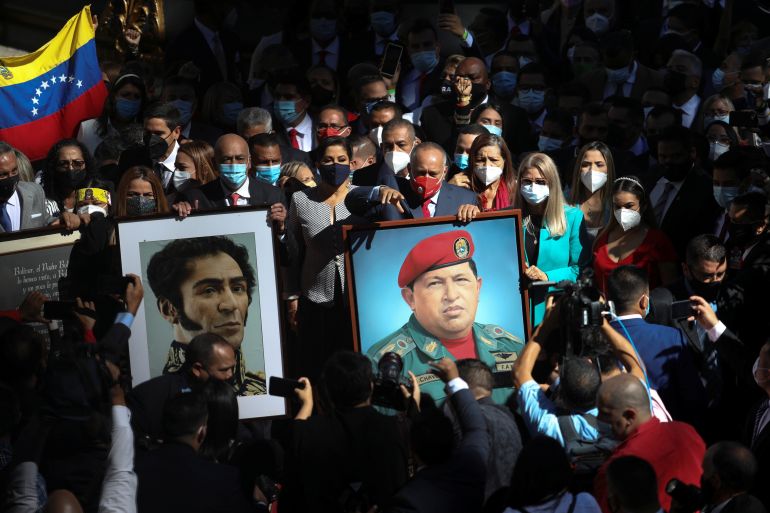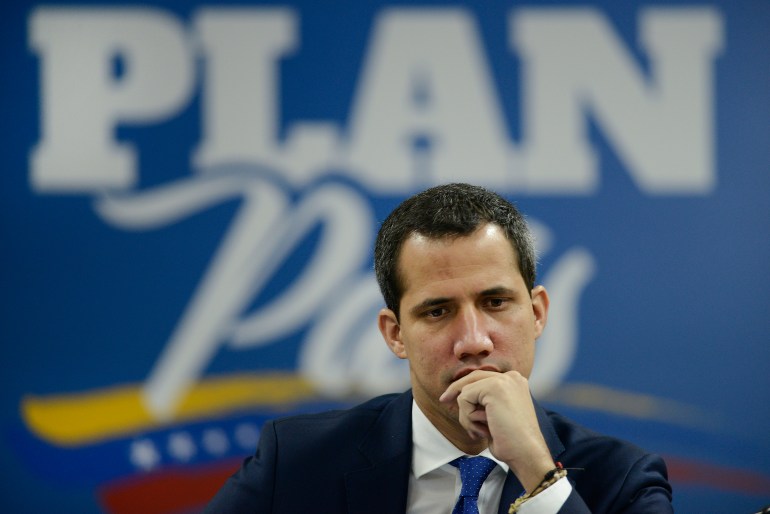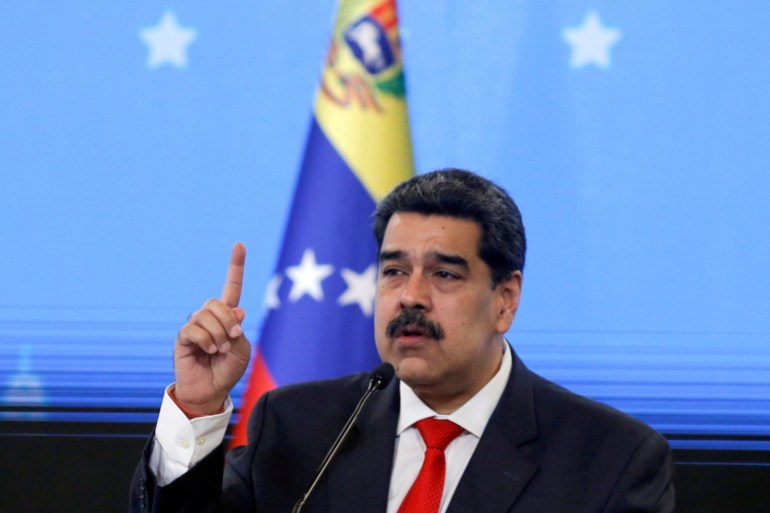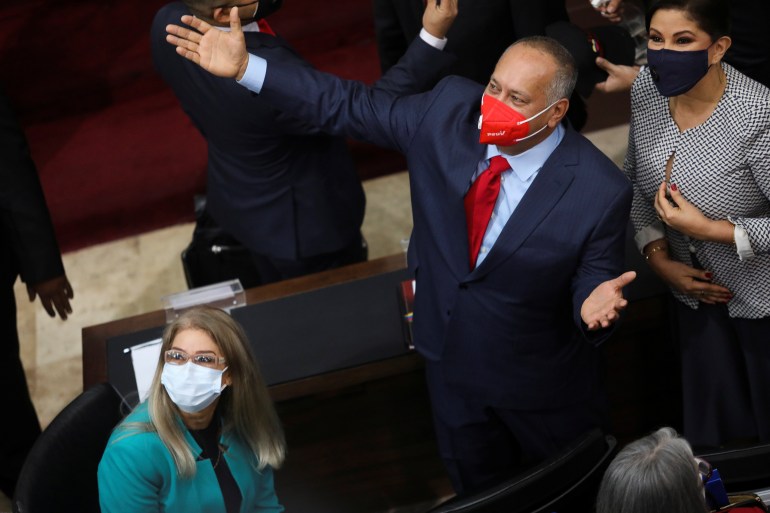Venezuela socialist party takes control of once-defiant congress
The shift in legislative power away from the opposition marks a consolidation of power for President Nicolas Maduro.

Nicolas Maduro extended his grip on power on Tuesday as the governing socialist party prepared to assume the leadership of Venezuela’s congress, the last institution in the country it did not already control.
Maduro’s allies swept legislative elections last month boycotted by the opposition and denounced as a sham by the United States, the European Union and several other foreign governments. While the vote was marred by extremely low turnout, it nonetheless seemed to relegate into irrelevancy the US-backed opposition led by 37-year-old legislator Juan Guaido.
Keep reading
list of 3 itemsVenezuela’s opposition needs a new strategy
Venezuela says ‘overloading’ caused deadly migrant boat sinking
Exactly a year ago, Guaido, in a blue suit and tie, tried to scale a spiked iron fence to get past a group of riot police blocking him from attending the parliament’s inaugural session, which according to the constitution must be held every year on January 5.
A far cry from that electric display of defiance, Guaido this year was expected to meet via Zoom with a cohort of opposition leaders for their own virtual parliamentary session.

Last month, anti-Maduro legislators, several dozen of them from exile, also gathered online to extend their mandate stemming from a landslide victory in 2015 for another 12 months, operating through an adjunct committee normally reserved for legislative recesses.
Supreme Court justices loyal to Maduro immediately struck down the law as invalid.
“The national parliament will not be detained until there are free elections in Venezuela,” Guaido said on Twitter recently.
While Guaido has not wavered, the opposition’s political fortunes have tanked as Venezuelans’ own hopes for change has collapsed. Recent opinion polls show support for Guaido having fallen by more than half since he first rose to challenge Maduro two years ago.
Meanwhile, Maduro has managed to retain a solid grip on power and the military, the traditional arbiter of political disputes. He also retains the support of the armed forces and foreign allies like Cuba, Russia and Iran.

He calls Guaido a US-backed puppet seeking to overthrow him in a coup to control Venezuela’s considerable oil reserves, and has barred opposition legislators from meeting in congressional headquarters, and also pushed dozens of legislators into exile.
The administration of US President Donald Trump has recognised the opposition-held congress’s one-year extension of its own term, but other international supporters of Guaido, including the EU, have yet to agree the opposition still rightfully controls Parliament.
The looming inauguration of US President-elect Joe Biden on January 20, after years of escalating US sanctions and diplomatic pressure on Maduro under Trump, represents another uncertainty for Guaido.

Biden has repeatedly labelled Maduro a “dictator” and has said he would work with other countries to seek free and fair elections in Venezuela, but has not laid out details of policies he plans to implement towards the nation.
Meanwhile, the new congress will be headed by Maduro’s former chief of staff, Jorge Rodriguez, who in the past led internationally-sponsored talks with the opposition and met with envoys from the Trump administration. Diosdado Cabello, who is widely seen as the second-most-powerful man in Venezuela, will lead the socialist party bloc.
Maduro, in announcing the leadership structure on Monday, called on the new congress to seek out dialogue with the opposition as well as focus on urgent economic measures.
“Venezuela has its eyes placed on the new National Assembly,” said Maduro, who was expected to attend Tuesday’s inaugural session after years of steadfastly avoiding sessions overseen by the opposition.